Hãy nhập câu hỏi của bạn vào đây, nếu là tài khoản VIP, bạn sẽ được ưu tiên trả lời.


1, What would he like to have for breakfast?
He would like to have a sandwich
2,Who would you like to go fishing with?
I would like to go fishing with my father
3,What would her children like to do in the summer?
They would like to go swimming
4,When would Mrs Tam like to go shopping?
She would like to go shopping at weekends
5,Where would Hung and Tung like to study
They would like to study in the library
1 What would he like for breakfast?
He'd like a sandwich
2 Who would you like to go fishing with?
I would like to go with my father
3 What would her children like to do in summer?
They would like to swim inpool
4 When would Mrs Tam like to go shopping?
She would like to go shopping on the weekends
5 Where would Tung and Hung like to study ?
THey would like to study in the school library

1 was sung
2 was bitten
3 was stolen
4 Was - given
5 weren't made
6 was cooked
7 weren't sent
8 were told
9 is drunk
10 was destroyed
giúp mk làm bài tiếng anh này vs , ai đồng ý mk sẽ gửi lik cho nha !! cám ơn , mk sẽ hậu tạ 3 tik !!



1 How mant starts are there in the sky?
2 How much water does she drink a day?
3 How much money did he have in his pocket?
4 How many pictures do they want to sell in the street
5 How much bread is there in your bag
bài 2
1 B
2 A
3 C
4 C
5 D

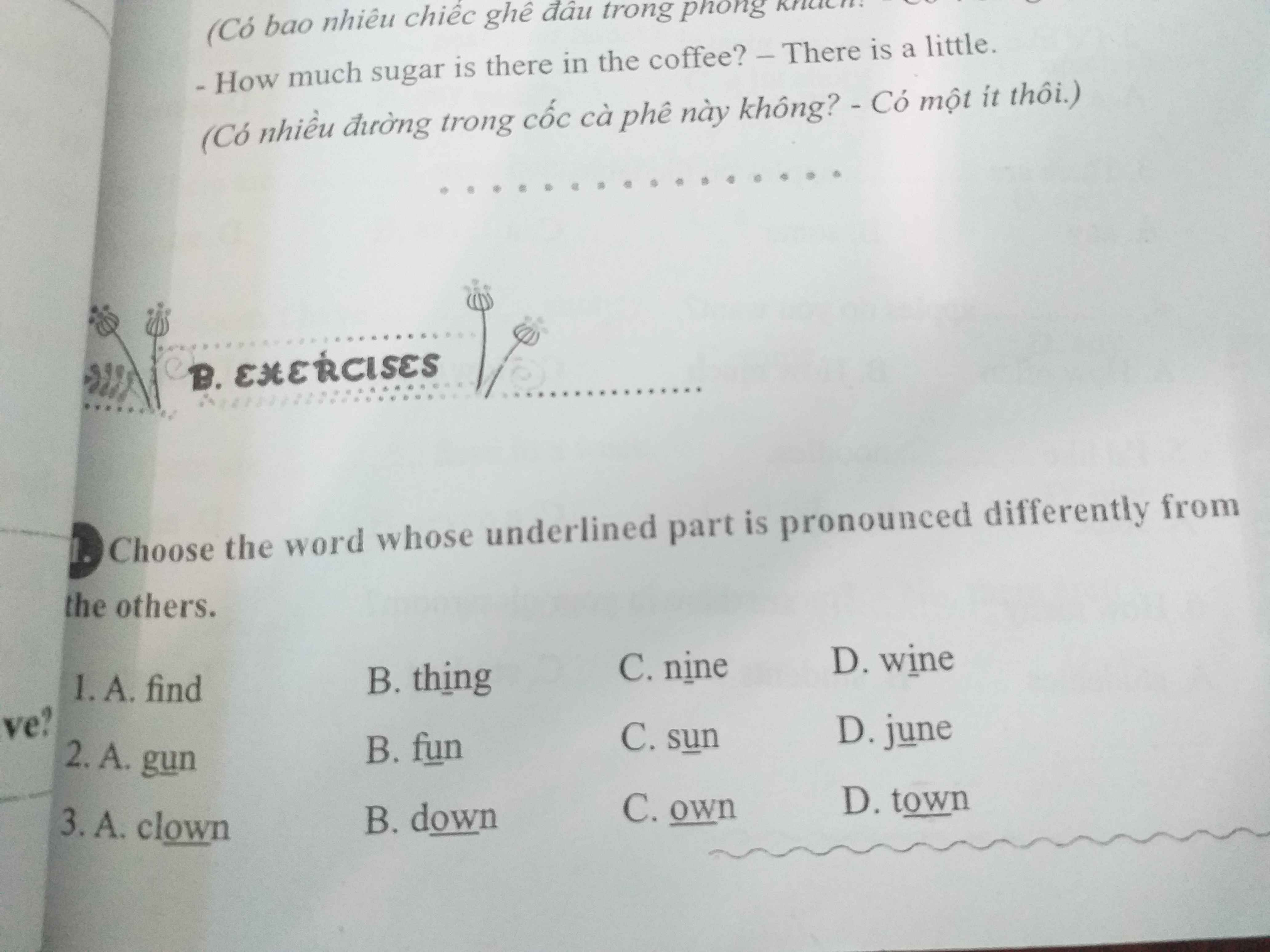
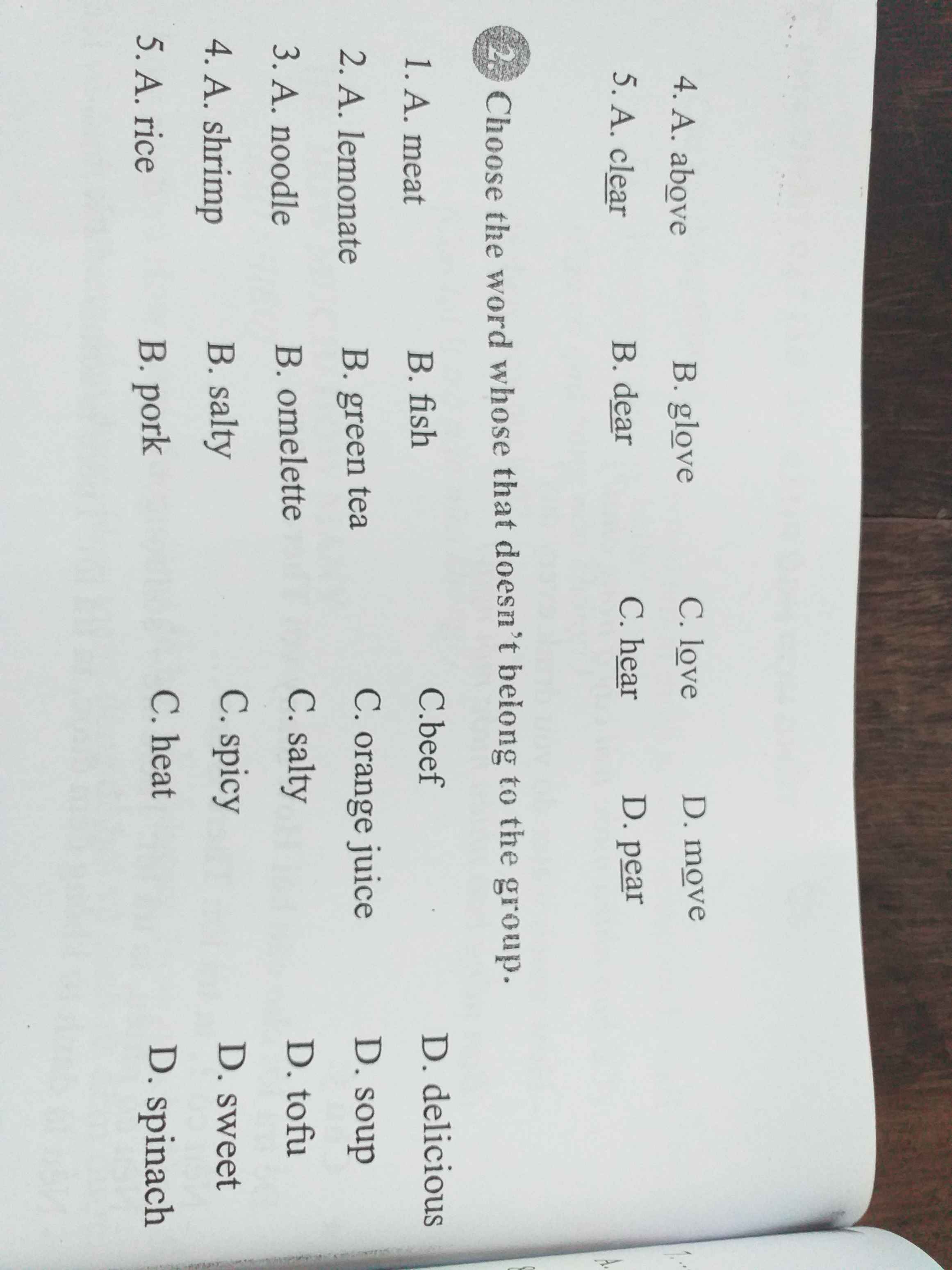
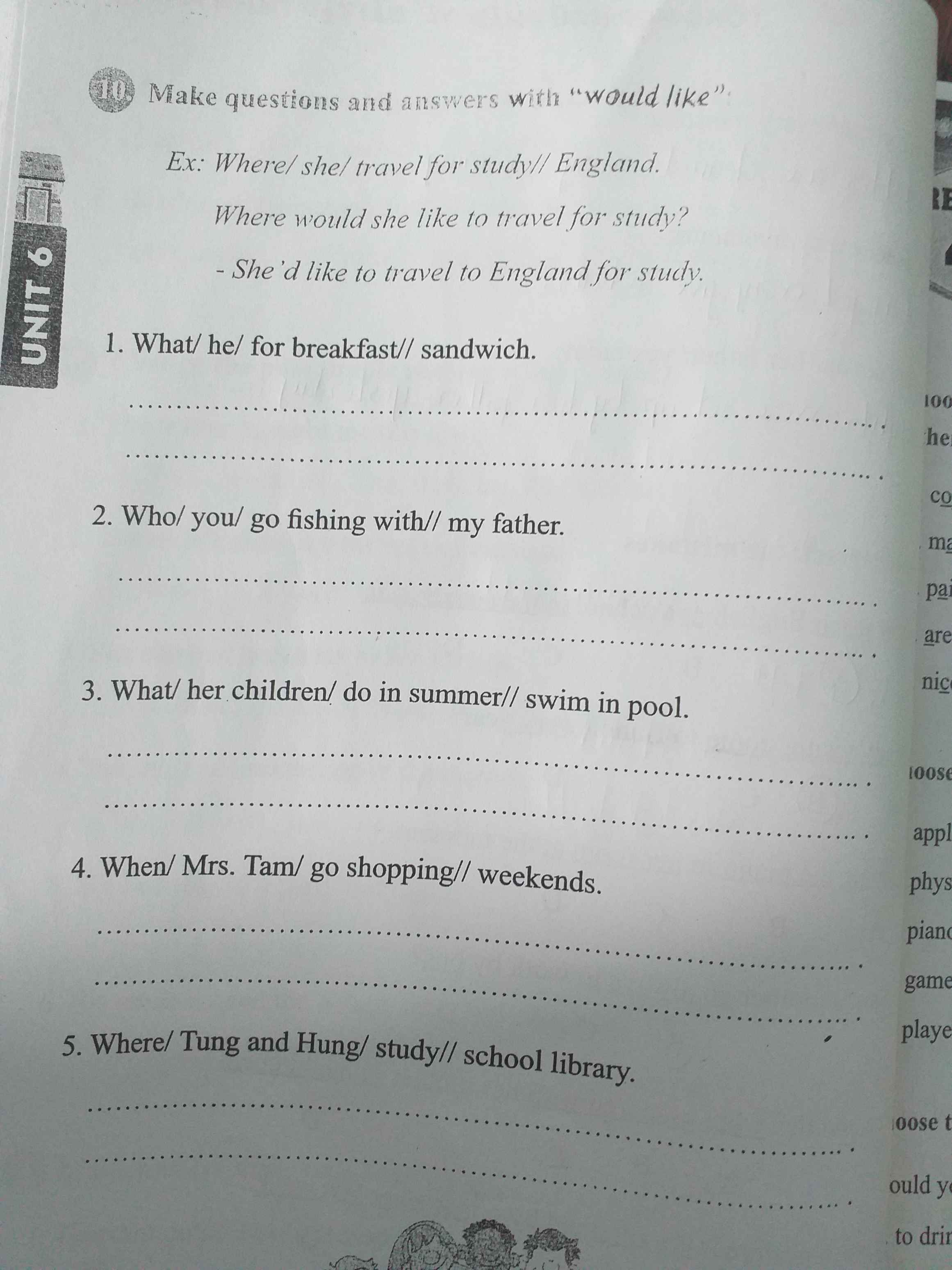
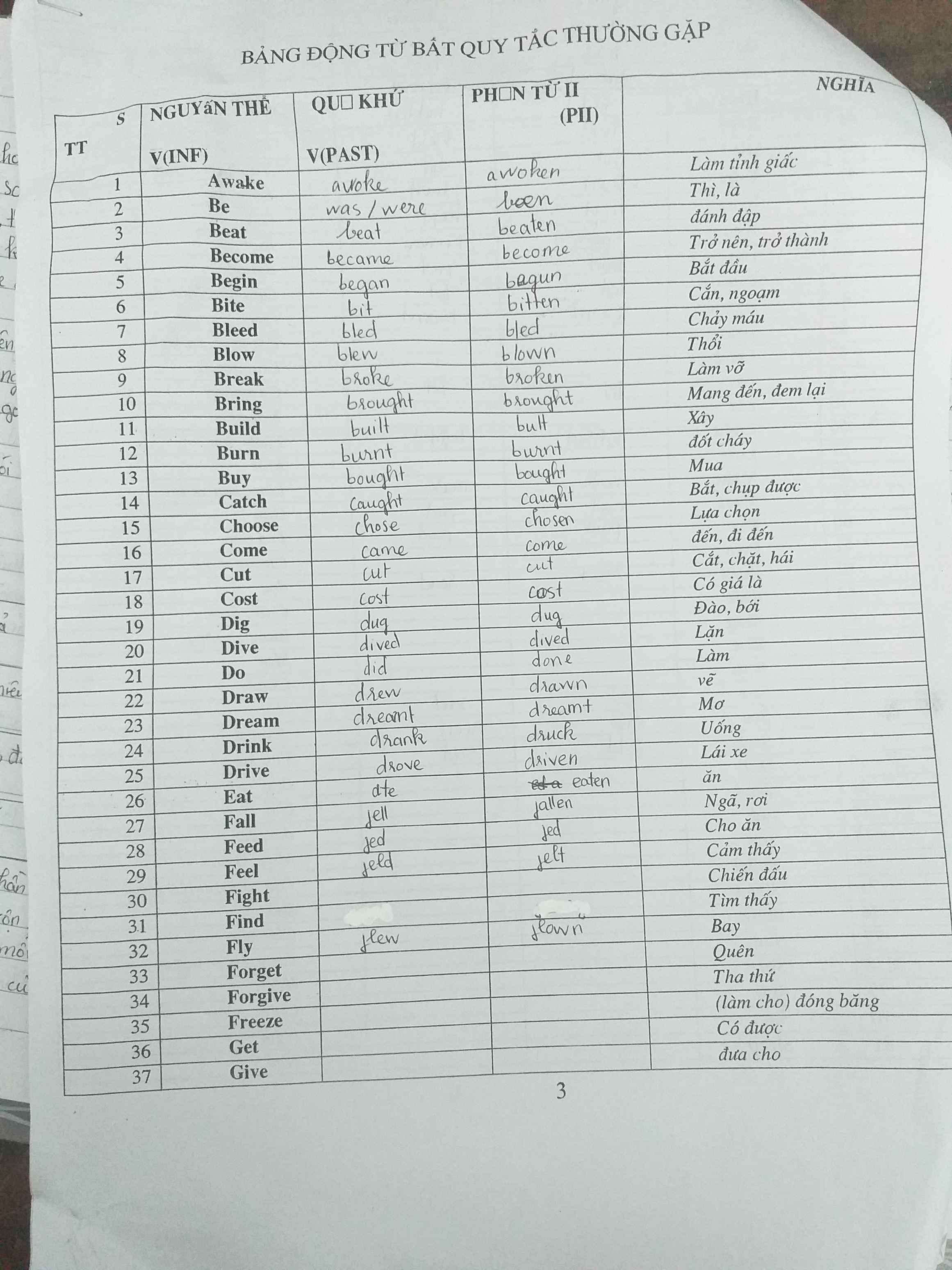
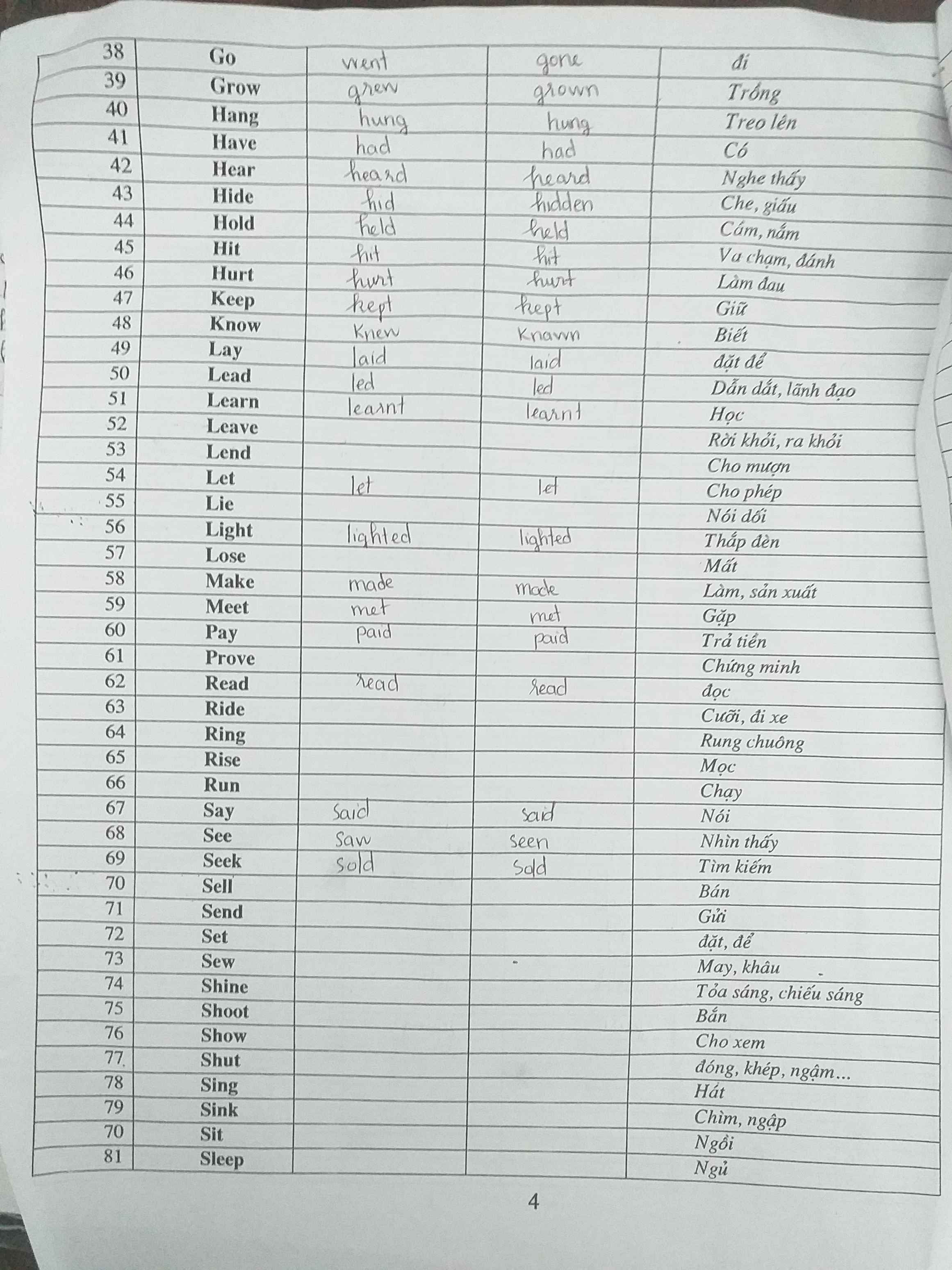

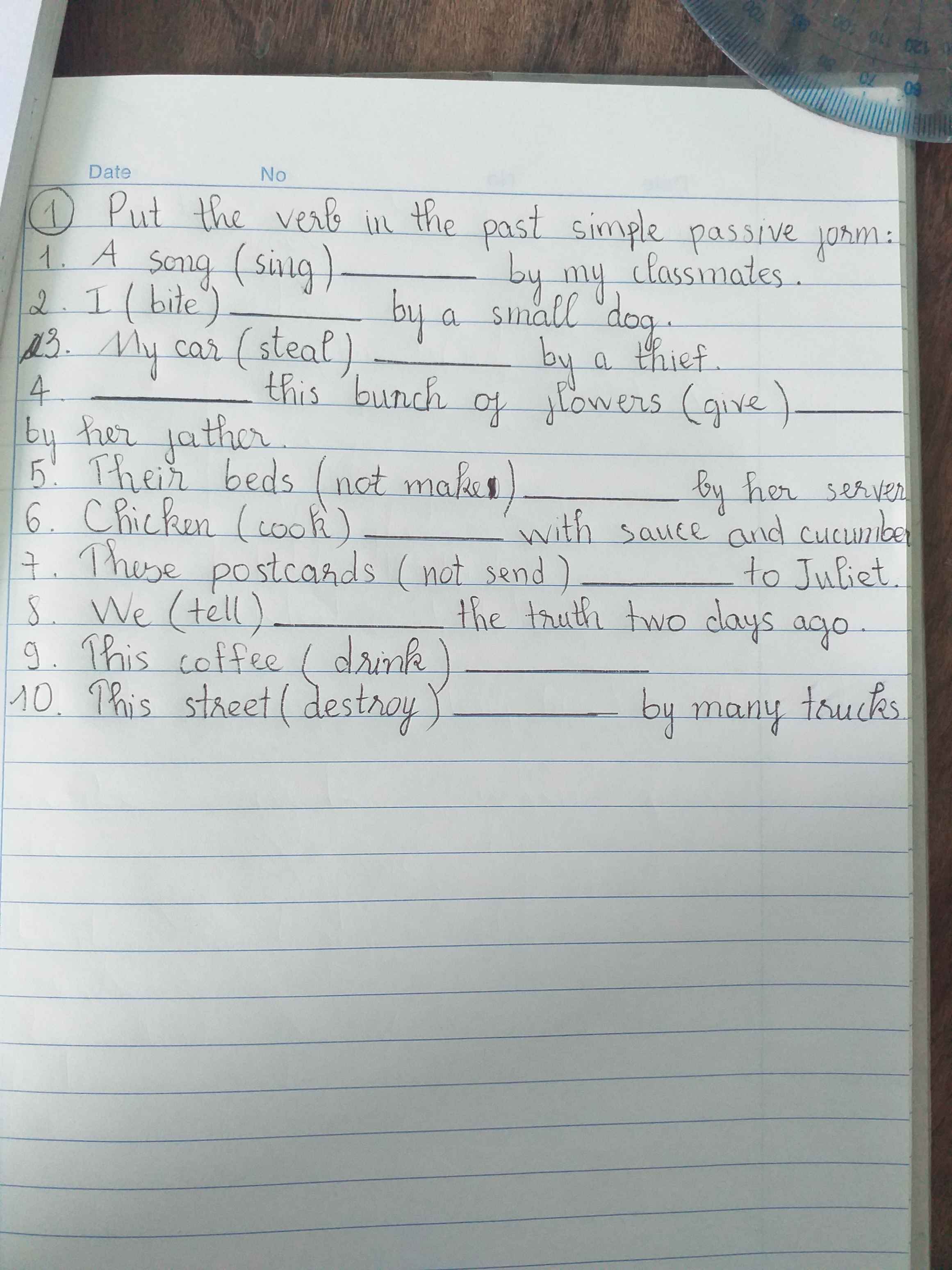
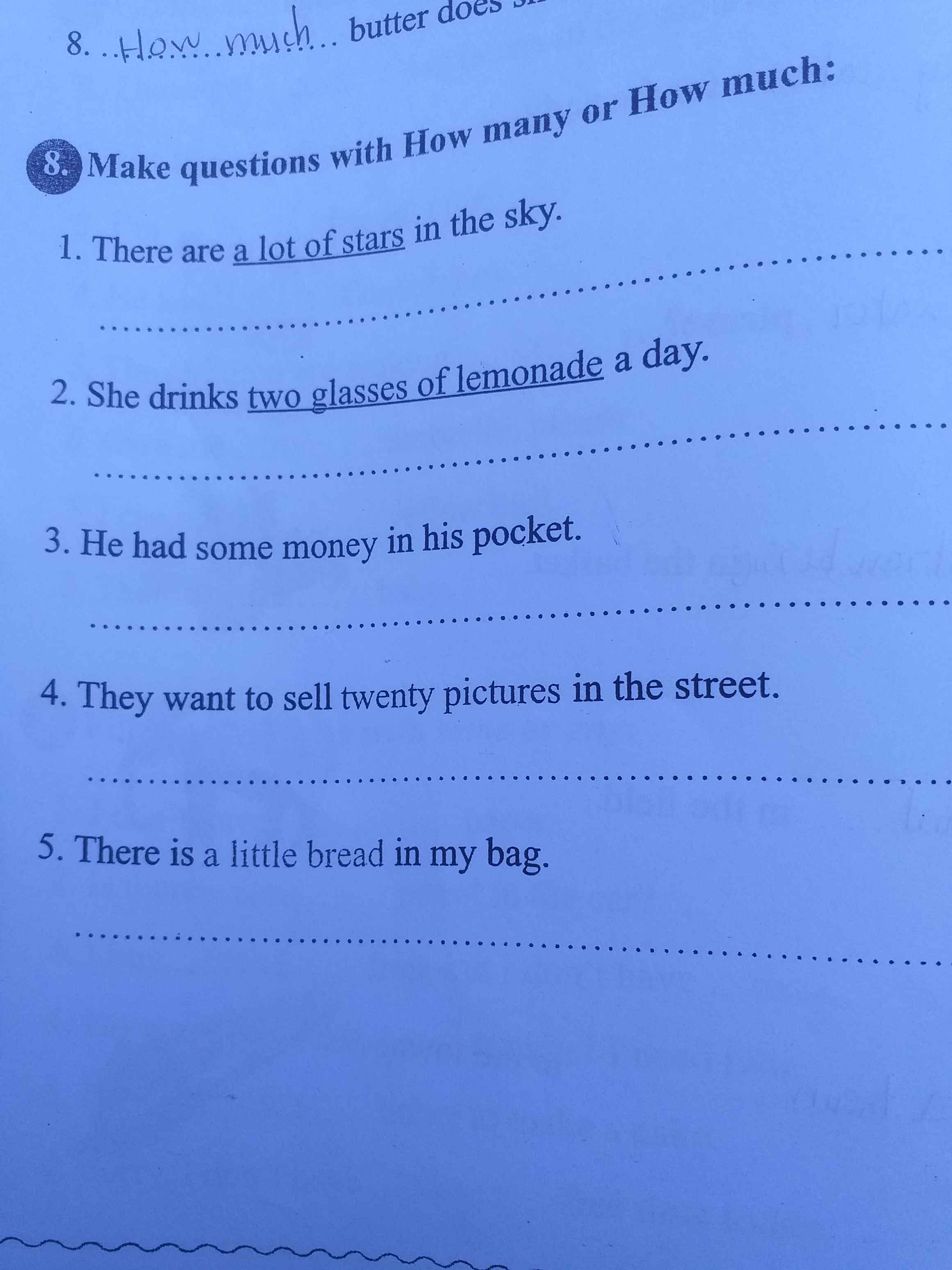
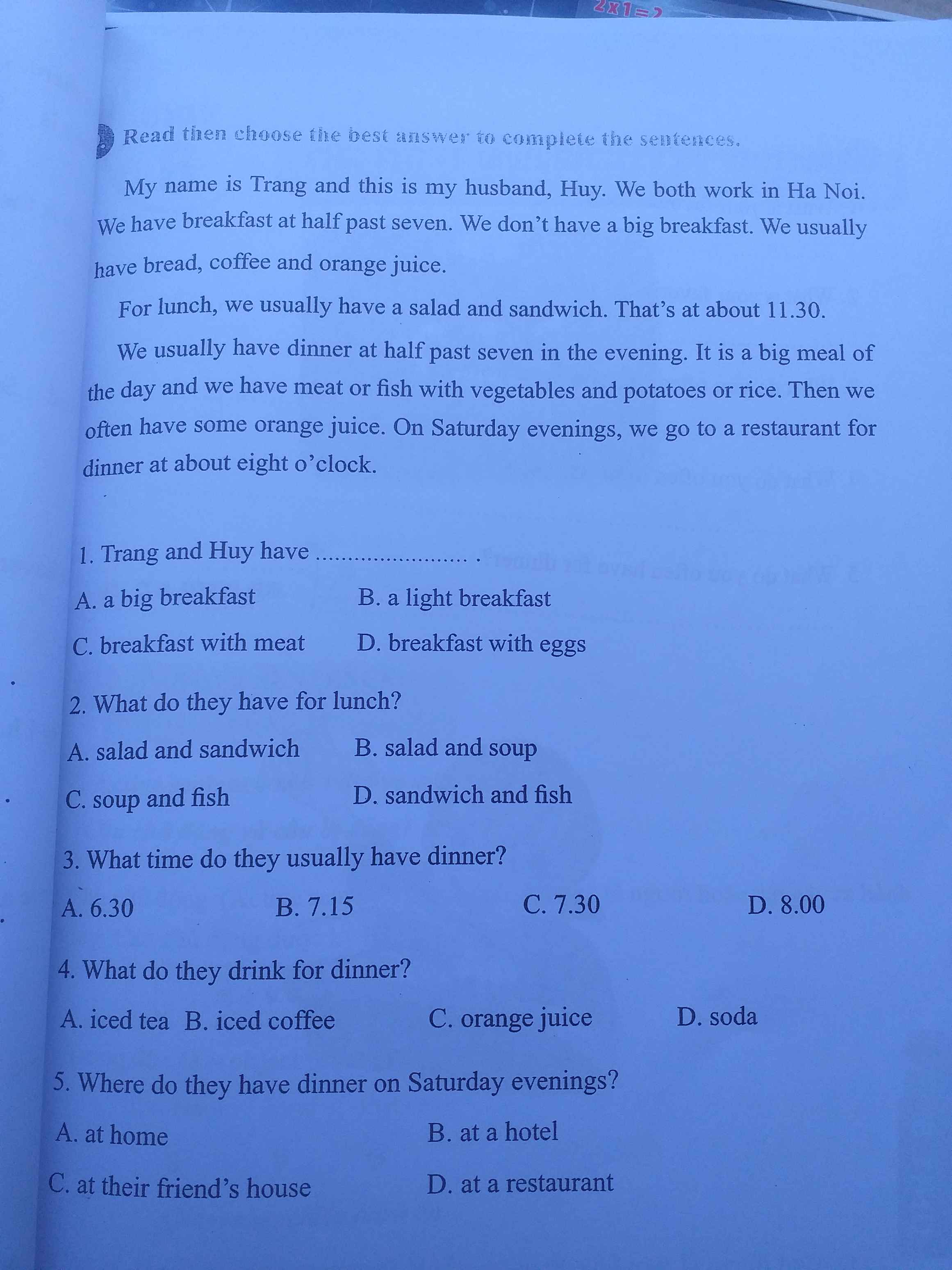
The Covid-19 coronavirus outbreak is a new illness and scientists are still assessing how it spreads from person to person, but similar viruses tend to spread via cough and sneeze droplets.
When an infected person coughs or sneezes, they release droplets of saliva or mucus. These droplets can fall on people in the vicinity and can be either directly inhaled or picked up on the hands then transferred when someone touches their face, causing infection. For flu, some hospital guidelines define exposure as being within six feet of an infected person who sneezes or coughs for 10 minutes or longer.
FacebookTwitterPinterest
Stay six feet from infected individuals.
Viruses can also be spread through droplets landing on surfaces such as seats on buses or trains or desks in school. However, whether this is a main transmission route depends on how long viruses survive on surfaces – this can vary from hours to months.
There is anecdotal evidence that the virus can be spread by people before they have symptoms. Some other illnesses such as flu can be passed from one person to another before symptoms occur – but the extent to which this is happening with the new coronavirus is not well understood yet.
How to protect yourself and others
FacebookTwitterPinterest
Wash your hands.
Wash your hands: wet your hands with clean, running water and apply soap. Lather your hands, including the backs, between your fingers, and under your nails and scrub for at least 20 seconds. Rinse.
FacebookTwitterPinterest
Cover your mouth.
Cover your mouth and nose with a tissue when you cough or sneeze, then throw the tissue in the bin and wash your hands. If you do not have a tissue to hand, cough or sneeze into your elbow rather than your hands.
FacebookTwitterPinterest
Face masks offer some protection.
Face masks offer some protection as they block liquid droplets. However, they do not block smaller aerosol parles that can pass through the material of the mask. The masks also leave the eyes exposed and there is evidence that some viruses can infect a person through the eyes.
FacebookTwitterPinterest
Seek medical help.
Seek early medical help if you have a fever, cough and difficulty breathing, and share your travel history with healthcare providers.
FacebookTwitterPinterest
Avoid live animals.
If visiting live markets in affected areas avoid direct, unprotected contact with live animals and surfaces that have been in contact with animals.
FacebookTwitterPinterest
Avoid raw foods.
If you have returned from an affected area in the last two weeks, stay indoors and avoid contact with other people for 14 days. This means not going to work, school or public areas.
FacebookTwitterPinterest
Seek medical advice before leaving home.
If you have returned from an infected area and develop a high temperature, cough, runny nose, sore throat or difficulty breathing do not leave your home until you have been given advice by a doctor.
In these extraordinary times…
… the Guardian’s editorial independence has never been more important. Because no one sets our agenda, or edits our editor, we can keep delivering trustworthy, fact-checked journalism each and every day. Free from commercial or polial bias, we can report fearlessly on world events and challenge those in power.
In these frightening and uncertain times, the expertise, scientific knowledge and careful judgment in our reporting has never been so vital. No matter how unpredictable the future feels, we will remain with you, delivering high quality news so we can all make crial decisions about our lives, health and security. Together we can find a way through this.
We choose to keep our measured journalism open to everyone around the world, regardless of where they live or what they can afford to pay. We believe every one of us deserves equal access to accurate news and calm explanation. Thanks to your support, we’re able to stay free of a paywall, our reporting available for all.
None of this would be possible without the generosity of readers, who now support our work from 180 countries around the world. You have helped us to keep investigating, disentangling and interrogating. Your support protects our independence, which has never been so crial. We are so grateful.
Hok tốt nha bạn!!!